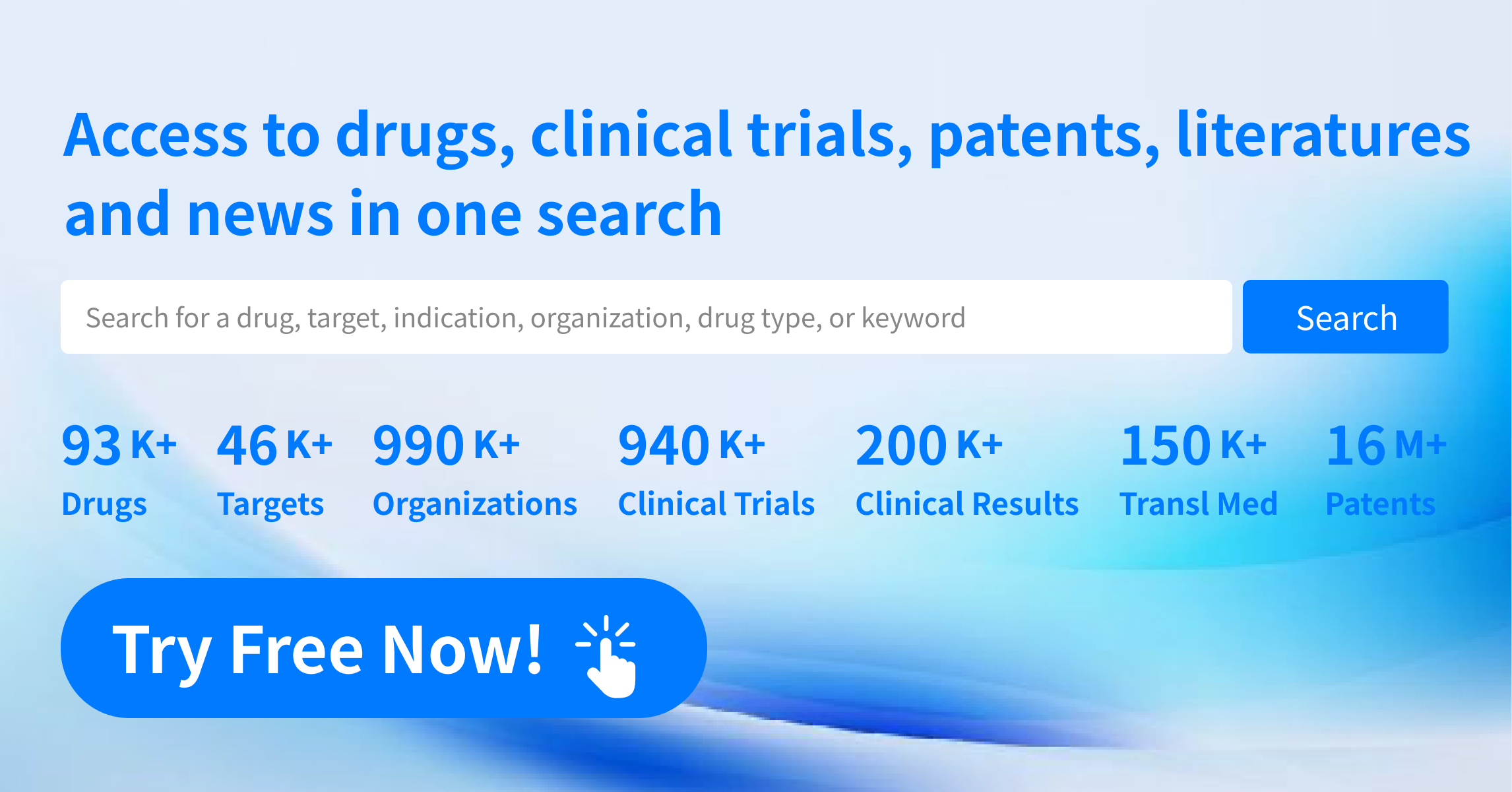Pharma Frontiers: Daily Digest of Global Pharmaceutical News – Aug 23
1.Bristol Myers Squibb's PD-1 Inhibitor Opdivo in Combination with Yervoy Immunotherapy Expected to Receive Approval Early Next Year
On August 22, Bristol Myers Squibb announced that the U.S. FDA has accepted their supplemental Biologics License Application (sBLA) for their significant PD-1 inhibitor, Opdivo (nivolumab), in combination with the CTLA-4 targeted antibody Yervoy (ipilimumab), as a potential first-line treatment for adults with unresectable hepatocellular carcinoma (HCC). Phase 3 clinical trial results demonstrated that, compared to the active control drugs, the combination of Opdivo and Yervoy significantly improved overall survival (OS) in patients, with the objective response rate (ORR) in the combination therapy group being nearly three times that of the control group. The PDUFA date for this application is set for April 21, 2025.
Liver cancer is the third leading cause of cancer death worldwide. HCC is the most common primary type of liver cancer, accounting for 90% of all liver cancers. HCC is usually diagnosed at a late stage when effective therapies are limited, and patients generally have a poor prognosis. Up to 70% of the patients experience relapse within five years, especially those considered high-risk after surgery. The application is primarily based on the results from the Phase 3 study CheckMate-9DW. CheckMate-9DW is a Phase 3 randomized, open-label trial that evaluated the efficacy and safety of Opdivo in combination with Yervoy versus the researchers' choice of sorafenib or lenvatinib monotherapy for treating patients with advanced HCC who had not previously received systemic treatment. Approximately 668 patients were enrolled in the trial, with its primary endpoint being overall survival, and key secondary endpoints including objective response rate and time to symptom deterioration.
Opdivo is a PD-1 immune checkpoint inhibitor designed to help restore anti-tumor immune responses by utilizing the body's own immune system to fight cancer. Yervoy targets and inhibits CTLA-4, a pathway that enhances T-cell activity to increase the tumor-killing ability. Yervoy was the first CTLA-4 antibody drug approved by the FDA in 2011 for treating advanced melanoma. The combination therapy of Opdivo and Yervoy has previously been approved as a second-line treatment for patients with advanced HCC.
2.Bangshun Pharmaceutical Announces Submission for Market Authorization of Class 1 Innovative Drug, OB756, a JAK2 Inhibitor
On August 22, the Center for Drug Evaluation (CDE) of the China National Medical Products Administration publicly disclosed that it has accepted the application for market approval of Bangshun Pharmaceutical's Class 1 new drug, OB756 tablets. Public information reveals that OB756 tablet, known as Bewintinib, is a JAK2 inhibitor and a core product of Bangshun Pharmaceutical. Based on earlier press releases from Bangshun Pharmaceutical, it is presumed that the indication for this market application is Myelofibrosis (MF).
OB756 (Bewintinib) is an oral selective JAK2 inhibitor which acts by targeting and inhibiting the kinase activity of JAK2 V617F, thus blocking the JAK/STAT signaling pathway and exerting therapeutic effects. The JAK family comprises a class of non-receptor tyrosine kinases, including JAK1, JAK2, JAK3, and TYK2 subtypes, which play pivotal roles in the signaling cascades of numerous type I and II cytokine receptors. These pathways mediated by JAK are pertinent to processes such as cell proliferation, differentiation, apoptosis, and inflammation. Studies have shown that aberrant activation of JAK2 is associated with myeloproliferative neoplasms (MPNs), including Myelofibrosis and Polycythemia Vera.
According to a press release from Bangshun Pharmaceutical in October 2023, Bewintinib has essentially completed phase III clinical trials for its Myelofibrosis (MF) indication and has entered the phase of preparing materials for a New Drug Application (NDA), which will be submitted to CDE. MF is a diffusive disease characterized by proliferative fibrous tissue in the bone marrow, classified under MPNs and potentially progressing to bone marrow failure or transforming into acute leukemia. The discovery of mutations such as JAK2 V617F in patients has led to significant advances in targeted therapy, markedly improving survival rates. Yet, there remains an urgent need for novel therapeutic drugs in this field.
3.Chia Tai Tianqing’s Dual-targeting ADC Innovative Drug TQB2102 Launches Phase 3 Breast Cancer Clinical Trial
Recently, the official website of the Chinese Clinical Trial Registry unveiled that Chia Tai Tianqing has initiated a Phase 3 clinical study for the injectable TQB2102, targeting indications in patients with HER2-low expressing locally advanced or metastatic breast cancer who have not previously undergone chemotherapy in the recurrent metastatic stage. The study plans to enroll 542 participants across 125 research centers in China. Publicly available data indicates that TQB2102 is an antibody-drug conjugate (ADC) targeting two non-overlapping epitopes on HER2. Breast cancer is the leading malignant tumor threatening women's health worldwide. Patients with HER2-low expressing breast cancer constitute about 45% to 55% of all cases. However, due to the absence of targeted treatment options, patients with low HER2 expression are often diagnosed as HER2-negative, and under traditional treatment methods, these patients still face numerous challenges in terms of survival time and quality of life. According to a press release from China Biopharmaceuticals, TQB2102 is a dual-antibody ADC targeting the extracellular domain 2 (ECD2) and extracellular domain 4 (ECD4) of HER2. Compared to monoclonal antibodies and other ADCs, this HER2 dual-antibody ADC exhibits stronger binding, internalization efficiency, and cytotoxicity against tumor cells, and it possesses advantages against tumors with medium to low HER2 expression. Additionally, the specificity of dual epitopes along with the ADC's mechanism of action is anticipated to effectively address resistance seen with monoclonal therapy. It is reported that after intravenous administration of TQB2102, the antibody portion binds to the ECD2 and ECD4 on the surface of HER2-positive tumor cells, and the ADC complex is then internalized and transported to the lysosome, where the linker is cleaved enzymatically releasing the small-molecule drugs, leading to DNA damage and cellular death. In vitro studies also demonstrate that TQB2102 can inhibit the HER2 signaling pathway and exhibits antibody-dependent cellular cytotoxicity (ADCC), with the small molecule drugs capable of killing adjacent cells through a bystander effect.
4.GSK's New Anti-PD-1 Monoclonal Antibody Drug Dostarlimab Launches Phase II Clinical Trial in China
Recently, according to the official website of the China Clinical Trial Registration and Information Platform, GlaxoSmithKline (GSK) has initiated a single-arm, Phase II clinical study in China for its monoclonal antibody dostarlimab, targeting treatment-naïve patients with dMMR/MSI-H locally advanced rectal cancer. Public records indicate that dostarlimab, an anti-PD-1 antibody, obtained clinical approval in China for the first time in July of this year. GSK recently announced new long-term data from a Phase II clinical trial of this product for use as a first-line treatment in patients with dMMR/MSI-H locally advanced rectal cancer. In this study, patients treated with the investigative drug demonstrated a 100% clinical complete response rate (cCR). The Phase II clinical study initiated by researchers in China focuses on this specific indication.
Dostarlimab is a PD-1 blocking antibody, designed to bind to the PD-1 receptor and block its interaction with the PD-1 ligands PD-L1 and PD-L2. The product has been approved by the FDA for several indications including advanced or recurrent dMMR endometrial cancer, primary advanced or recurrent dMMR or MSI-H endometrial cancer, and recurrent or advanced solid tumors with dMMR. Additionally, GSK is exploring the therapeutic potential of this drug in several Phase III clinical studies.
The Phase II, single-arm, open-label study launched by GSK in China aims to evaluate the efficacy of dostarlimab as monotherapy in previously untreated patients with Stage II/III (locally advanced) dMMR/MSI-H rectal cancer. The primary endpoint is cCR12, which is a sustained complete clinical response assessed by Independent Central Review (ICR) at 12 months, starting after the last administration of the study drug (ICR verified cCR). The study will also assess secondary endpoints including cCR24 (sustained complete clinical response at 24 months), cCR36 (sustained complete clinical response at 36 months), and EFS3 (event-free survival at 3 years).
5.GSK's Innovative Targeted Cancer ADC Granted FDA Breakthrough Therapy Designation!
Recently, GSK announced that the U.S. FDA has granted breakthrough therapy designation to its B7-H3 targeted antibody-drug conjugate (ADC), GSK5764227 (GSK'227). The therapy is currently being evaluated for treating patients with recurrent or refractory extensive-stage small cell lung cancer (ES-SCLC) who have progressed during or after platinum-containing chemotherapy. Lung cancer is one of the most common cancers globally. In the USA, about 15% of lung cancers are small cell lung cancers. Among these patients, 70% are in the extensive stage, meaning the cancer has spread to either one or both lungs and/or other parts of the body. ES-SCLC is an aggressive and difficult-to-treat cancer, with limited treatment options and a 5-year survival rate of about 3%. Most patients with ES-SCLC relapse after initial treatment, and the current standard treatment for relapsed ES-SCLC has a median overall survival of 5-6 months.
The grant of this breakthrough therapy designation was supported by data from the ARTEMIS-001 Phase 1 open-label, multicenter trial. This trial involved over 200 patients, assessing the safety, tolerability, and preliminary anti-tumor activity of GSK5764227 in locally advanced or metastatic solid tumors, including relapsed or refractory ES-SCLC. The trial results are expected to be announced at the upcoming World Conference on Lung Cancer (WCLC) in September this year. GSK plans to start a global Phase 1/2 trial in the second half of 2024 to support the registration studies of GSK5764227.
GSK5764227 (formerly known as HS-20093) is a novel B7-H3 targeted ADC, consisting of a fully humanized anti-B7-H3 monoclonal antibody covalently linked to a topoisomerase inhibitor (TOPOi) payload. GSK5764227 was initially developed by Hansoh Pharma for the treatment of lung cancers, sarcomas, head and neck cancers, and other solid tumors, with several Phase 1 and Phase 2 clinical trials conducted in China. Earlier this year, GSK acquired exclusive global rights (excluding mainland China, Hong Kong, Macau, and Taiwan) to GSK5764227 from Hansoh Pharma to advance the clinical development and commercialization of this therapy.
6.Jiakesi Terminates Clinical Development of SHP2 Inhibitor JAB-3068
On August 21, Jiakesi issued a mid-term report for 2023 and a supplementary announcement to its annual report. It disclosed that the board of directors has decided to terminate the clinical development of JAB-3068, a conformational SHP2 inhibitor, which had progressed to Phase II clinical trials. In July 2023, AbbVie terminated its collaboration with Jiakesi on the SHP2 inhibitors JAB-3068 and JAB-3312 based on portfolio and strategic decisions. The specific content of the announcement also includes: As of June 30, 2022, Jiakesi received a net amount of approximately 300.6 million yuan, which was originally intended for the preparatory work for the registration clinical trials of JAB-3068 in relevant regions and the submission of registration applications. According to the collaboration agreement signed with AbbVie, Jiakesi was to conduct preclinical and early global clinical development activities for SHP2 products according to the development plan and budget, and produce (or has produced) SHP2 products for clinical research. AbbVie would compensate Jiakesi for costs and expenses incurred from July 31, 2022, onwards (up to 105% of the current development budget), with Jiakesi bearing any costs exceeding the 105% cap, except in certain exceptional cases. Based on the progress of JAB-3068 and the primary development of Glecirasib (a KRAS inhibitor), the board believes that reallocating the net amount of funds originally intended for the registration clinical trials and application preparation of JAB-3068 in relevant regions, and increasing the allocation for the clinical development of Glecirasib and other ongoing and planned early drug discovery and development projects, would benefit Jiakesi's overall research and development progress.
7.ImmuneOnco has completed the initial payment of the licensing and collaboration agreement with Instil Bio for IMM2510 and more
On August 22, ImmuneOnco announced the receipt of a $10 million upfront payment from Instil Bio, Inc., marking the successful first step of their collaboration. The payment is part of the licensing and collaboration agreement signed in early August, effective from August 1, 2024, for IMM2510 and IMM27M.
Under the terms of this agreement, Instil Bio’s wholly-owned subsidiary, SynBioTx, will acquire global development and commercialization rights for IMM2510 and IMM27M outside of Greater China, while ImmuneOnco retains rights within Greater China, including Taiwan, Macau, and Hong Kong. ImmuneOnco is set to receive up to $50 million in upfront and near-term payments, along with potential milestone payments totaling over $2 billion upon achieving certain development, regulatory, and commercial milestones. Additionally, ImmuneOnco will earn sales royalties, which range from a single-digit to low double-digit percentage of net sales outside of Greater China.
How to obtain the latest research advancements in the field of biopharmaceuticals?
In the Synapse database, you can keep abreast of the latest research and development advances in drugs, targets, indications, organizations, etc., anywhere and anytime, on a daily or weekly basis. Click on the image below to embark on a brand new journey of drug discovery!




